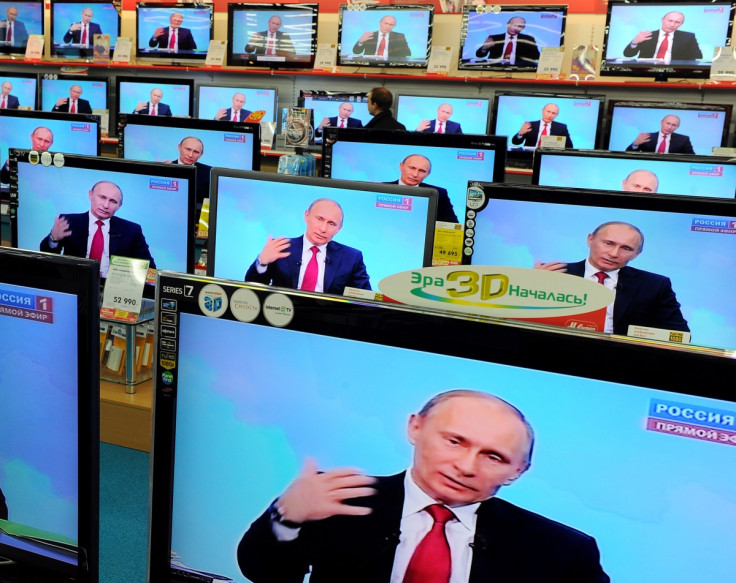EU anti-propaganda unit starved of funds as Kremlin intensifies fake news campaign, warns official
Unit on back foot as Russia ramps up disinformation campaign in Europe.

The EU's anti-propaganda unit lacks the resources to effectively combat an intensified fake news and disinformation campaign Russia is gearing up to wage in Europe, an official has warned.
On Tuesday (24 January), it was reported that the EU's East Stratcom Taskforce was to receive extra personnel and funding, amid signs the Kremlin's propaganda machine is preparing to target a series of forthcoming European elections in a bid to weaken the bloc and extend its influence.
However a member of the unit has told IBTimes UK the modest resources, which are to be relocated within the EU's foreign service, will not be sufficient for monitoring the wave of disinformation being spread through Kremlin-funded media and social media channels.
The official said the unit had "nowhere close to" the number of staff required to track the disinformation, which is disseminated in several languages and designed to undermine faith in governments, liberal values, and European institutions.
"We know that we are only scratching the surface and do not have a full picture of what's happening," said the official, who spoke to IBTimes UK on condition of anonymity.
In November, the European Parliament turned down a request for the unit to receive €800,000 in extra funding, and the 11-person unit still has no independent budget and draws funds from other EU member state resources.
Russia spends more than $1bn annually on its propaganda operations, former Deputy US Secretary of State Benjamin Ziff said in 2015. The Kremlin has been accused by US intelligence agencies of waging an information and influence campaign which aided Donald Trump's ascent to power as US president.
The EU taskforce was set up in 2015, to combat disinformation from Russia unleashed in the wake of the Ukraine crisis as well as propaganda from Islamic extremist organisations.
It has debunked 2,500 fake news stories since being founded, which often originate from Kremlin-funded news networks including Russia Today and Sputnik, and are picked up and redistributed by a network of pro-Kremlin blogs and social media accounts.
IBTimes UK also understands that the unit does not currently have suficent staff to monitor disinformation in each of the European languages it is spread, and the funding increase is likely to result in only two or three new members of staff being hired.
Earlier in January, the unit warned of a spike in disinformation targeting Germany, where Chancellor Angela Merkel, a key backer of Russian sanctions, is standing for re-election later in the year.
The information bears out claims by Merkel and German officials that Russia would scale up its European disinformation campaign in the wake of its alleged interference in the US election. Britain's MI6 chief Alex Younger has warned that 'hybrid warfare' campaigns of the type waged by Russia pose a threat to democracy.
Germany is reportedly to follow to example of the Czech Republic, and set up its own specialist unit to combat fake news, which would coordinate with the EU taskforce.
There is also concern that Russia could attempt to interfere in forthcoming elections in France and the Netherlands.
The source said that one major shift in Kremlin messaging in recent months was a newfound enthusiasm for the US government, following Trump's victory.
"One change is the change of attitude to the USA, because it used to be everything from the US is bad, now it's everything from the Obama admin is bad and the Trump admin is quite fine. There are even some messages that a mysterious establishment prepared the assassination of Donald Trump, so apparently the pro-Kremlin media are quite protective of the new president," said the source.
© Copyright IBTimes 2025. All rights reserved.






















